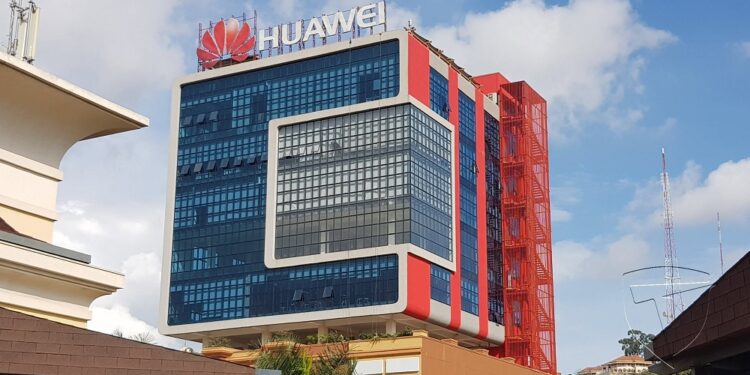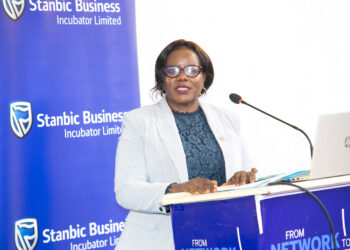Globally, Huawei is a leading provider of Information and Communications Technology (ICT) infrastructure and smart devices. The tech company currently operates in over 170 countries and regions, serving more than three billion people around the world.
Huawei has been in operation in Uganda for over a decade now, meeting the country’s digital infrastructure and ICT solutions. Its current strategy, is to galvanize Uganda’s digital transformation goals and development agenda; in line with the entity’s Vision and Mission to bring digital to every person, home and organization in Uganda, as well as enhancing global connectivity and intelligent world.
“We are aware, in the National Development Plan III, Uganda has prioritized the ICT sector and Government of Uganda – who are our key development partner, intends to increase the penetration and use of ICT services to ignite local socio-economic development. As Huawei, we are glad to continue playing a key role in achieving Uganda’s digital transformation and development aspirations.
“Our strategy and commitment to digitize Uganda, we believe, will increase access and usage of ICT services throughout the country for effective communication and execution of state programs, in line with Uganda’s Vision 2040. The impact of our years of operation in Uganda attest to this,” says Mr. Gao Fei, Huawei Chief Executive Officer.
The President of Uganda HE. Yoweri Museveni on November 10th, 2021 during the Science Day Celebrations at Kololo Ceremonial Grounds, asserted that digital economy will shape a vibrant, equitable and sustainable future by fostering creative solutions to advance an inclusive technological future for Uganda.
Besides the technological advancement, ICT has contributed to the country’s Gross Development (GDP); in 2013, the National Planning Authority estimated that the ICT sector contributed 3.1% to Uganda’s GDP. This has doubled overtime, with more service, revenue and employment contributions to the economy.
Huawei has for long been part of Uganda economic growth and development of the national digital foot print. In 2019, it was recognized by Uganda Revenue Authority (URA), receiving an award for being second runners-up among top tax payers of Uganda, where the telecommunications sector has been outstanding.
Background:
The partnership between Uganda and Huawei dates way back in early 2000s , where the tech company entered the economy to revolutionize ICT and telecommunications services in Uganda.
Through a concession loan from the EXIM bank of China, Uganda contracted Huawei to revitalize ICT innovation, cementing the long-standing cultural, economic and technological exchange between Uganda and China.
This partnership saw the launch of the first phase of the National Backbone Infrastructure (NBI), connectivity and E-government project in 2008. This partnership project was being implemented in coordination with National Information and Technology Authority (NITA-U), that has so far reached phase 4, with the internet backbone reaching Karamoja in 2019.
The program was aimed at providing reliable and competitive broadband services to regional and national government offices, to extend government services to the people. Huawei has also executed this venture, as part of East Africa-wide terrestrial fiber-optic cable network to support digital communication and cooperation within the region.
With the help of Huawei’s technology, NITA-U instituted digital systems like online Visa application, online payment of taxes, payments for services like water and electricity, through the National Backbone Infrastructure. Huawei has also worked with Government Ministries, Departments and Agencies in Uganda to extend digital products and services through connection to the E-platform to foster efficiency.
As the main contractor of the NBI project, Huawei has successfully deployed 4000 km of National Optic Fibre. In addition, it has also connected 1360 MDA in 57 districts to the NBI project, hence fostering ICT’s enhancements in Uganda.
When complete, the NBI project is expected to cover over 15,600 km linking Uganda to its regional neighbors of Kenya, Tanzania, Rwanda and Burundi.
Huawei’s support for ICT capacity building in Uganda:
Through the NBI project, Huawei has invested heavily in ICT training and upskilling projects for the youth, who form majority population and the future of Uganda. Through the Talent Development Program pioneered by Huawei, the initiative has supported the establishment of various ICT training academies to impart sustainable ICT skills to the youth across the world.
Huawei has 17 of these academies in Uganda. A case in point is an ICT academy at Uganda’s Makerere University that was established in 2019. The academy has so far equipped over 1,600 students with special training in ICT skills. Of these 1000 have been certified and passed out to support digital transformation in their communities.
“Personally, I was fortunate to take more than 100 students through these trainings, of which more than 78% passed,” says Olinga John Peter, Huawei ICT academy instructor at Makerere University.
While addressing guests during the E-government Campaign Galla Excellence Awards at Serera Hotel in Dec. 2021, permanent secretary in the ministry of ICT and National Guidance Dr. Amina Zawedde expressed satisfaction with Huawei’s efforts towards the digitalisation of Uganda through imparting ICT skills to the youth.
Huawei also came up with another initiative, the ICT competitions, a fully-fledged competitive ICT talent exchange program, developed globally for university, college and TVET students to support the development of ICT talent ecosystem in order to promote ICT related innovations. Between 2018 and 2020, over 3900 students from Uganda have benefited from the global Huawei ICT competitions.
“Additionally, I thank Huawei Uganda for sponsoring the UCC ACIA awards, where we emerged as winners,” says Evelyn Namara, the co-owner of a tech company Vouch Digital, after her entity won UCC ACIA awards in 2017 sponsored by Huawei.
Huawei has also made strides in tackling the problem of unemployment in the country by providing internship opportunities to students in institutions of higher learning. Since 2012, the ICT giant has awarded internship opportunities to over 400 students and over 30 permanent jobs from the interns in various departments.
Suffice to note, Huawei has offered scholarships to Ugadan ICT students to study in China, for the seeds of the future program. This scheme was launched in 2008, to develop skilled, local ICT talent and bridge the communications gap between countries and cultures.
On 19th, May 2022, Huawei Uganda signed a memorandum of understanding (MoU) with the ministry of ICT and National Guidance, at the national innovation hub at Uganda Institute of Communications of Technology at Nakawa, that will see the establishment of an ICT academy at the same institution, to provide adequate skills, training and certification.
Huawei also proactively contributes to industrial organizations, through vocational skilling programs such as work place organizations, industrial alliances, and open-source communities, to accelerate industry development and expand industry space.
It recently entered into partnership with Airtel Uganda and the Ministry of ICT and National Guidance, in a campaign to improve Uganda’s service delivery and socio-economic transformation, through offering quality and affordable ICT services.
Huawei has its mark and continues to commit towards transforming Uganda, into a digital and sustainable economy, interlinked to the world.
Do you have a story in your community or an opinion to share with us: Email us at editorial@watchdoguganda.com













